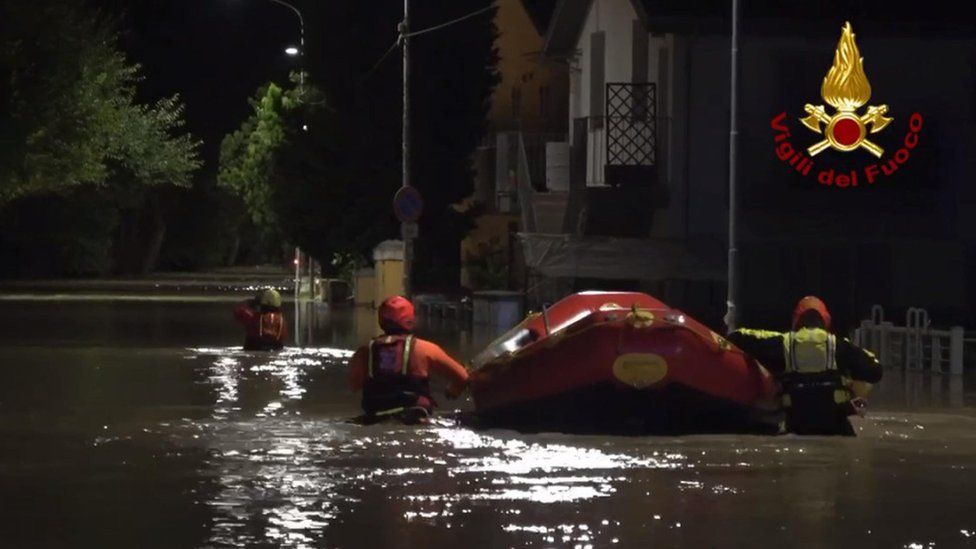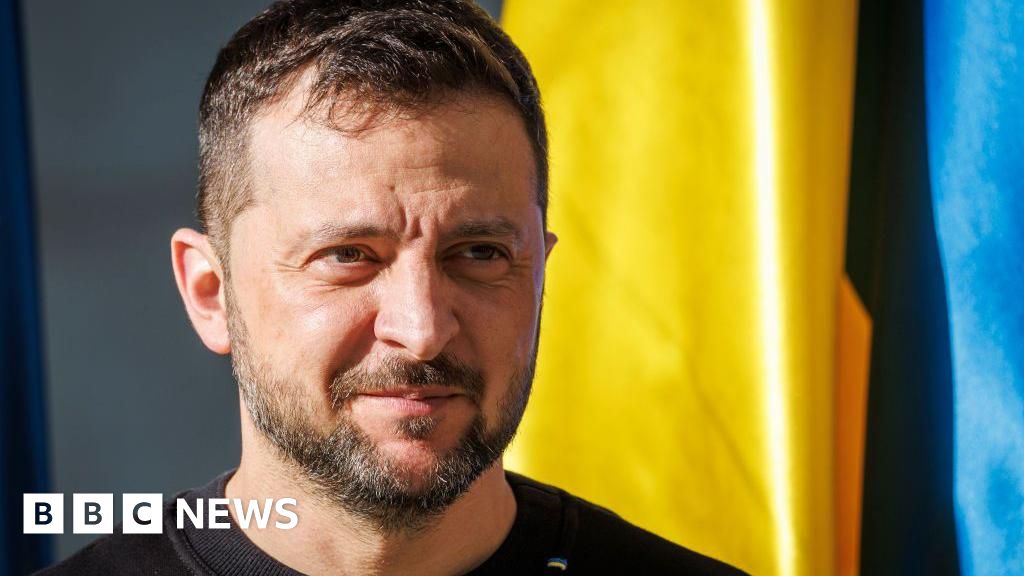ARTICLE AD BOX
By Leo Sands
BBC News
 Image source, EPA-EFE/REX/Shutterstock
Image source, EPA-EFE/REX/Shutterstock
Rescue workers use a dinghy to evacuate people trapped overnight in Senigallia, Ancona province
At least eight people have died after flash floods hit the Italian region of Marche overnight, authorities said.
Torrential rain falling late on Thursday caused rivers and streams to overflow and inundate coastal towns around the regional capital of Ancona.
Around 400mm (16 inches) of rain - half a year's worth - were recorded in just a few hours.
Rescuers are still searching for four others, including a child who was separated when a river burst its banks.
"It was like an earthquake." said local mayor Ludovico Caverni to RAI state radio.
According to one local report, a mother who managed to escape her car with her child in her arms became separated from him after being overwhelmed by water when the River Misa burst its banks.
Emergency workers managed to rescue the woman overnight but her six-year-old child is one of several still missing, local outlets report.
More than 180 firefighters are assisting in the rescue efforts, evacuating people who overnight were forced to climb up trees or get onto their roofs to escape the rising water.
Some of the rescuers used dinghy rafts and helicopters to reach trapped families, footage shows.
An unusually dry summer left nearby lands parched in the coastal area and unable to absorb the copious volumes of water falling down.
Although rain was forecast for the region - local officials say the ensuing flash floods took everyone by complete surprise.
"We were given a normal alert for rain, but nobody had expected anything like this," Marche regional official Stefano Aguzzi told reporters according to Reuters.
Weather officials said the severity of the floods were explained by a combination of two things: unusually hot September temperatures, and a persistent drought over the summer.
The heat meant the sea was warmer than usual for this time of year putting more moisture into the air.
When a storm then released the moisture in the form of rain, a severe summer drought meant the land was too dry to absorb the falling water quickly enough.
Unusually hot weather and low rainfall levels have compounded northern Italy's water shortages and heightened fears about the effects of climate change.
You might also be interested in:
Watch: Water levels on Italy's Lake Garda at 15 year low

 2 years ago
21
2 years ago
21









 English (US)
English (US)